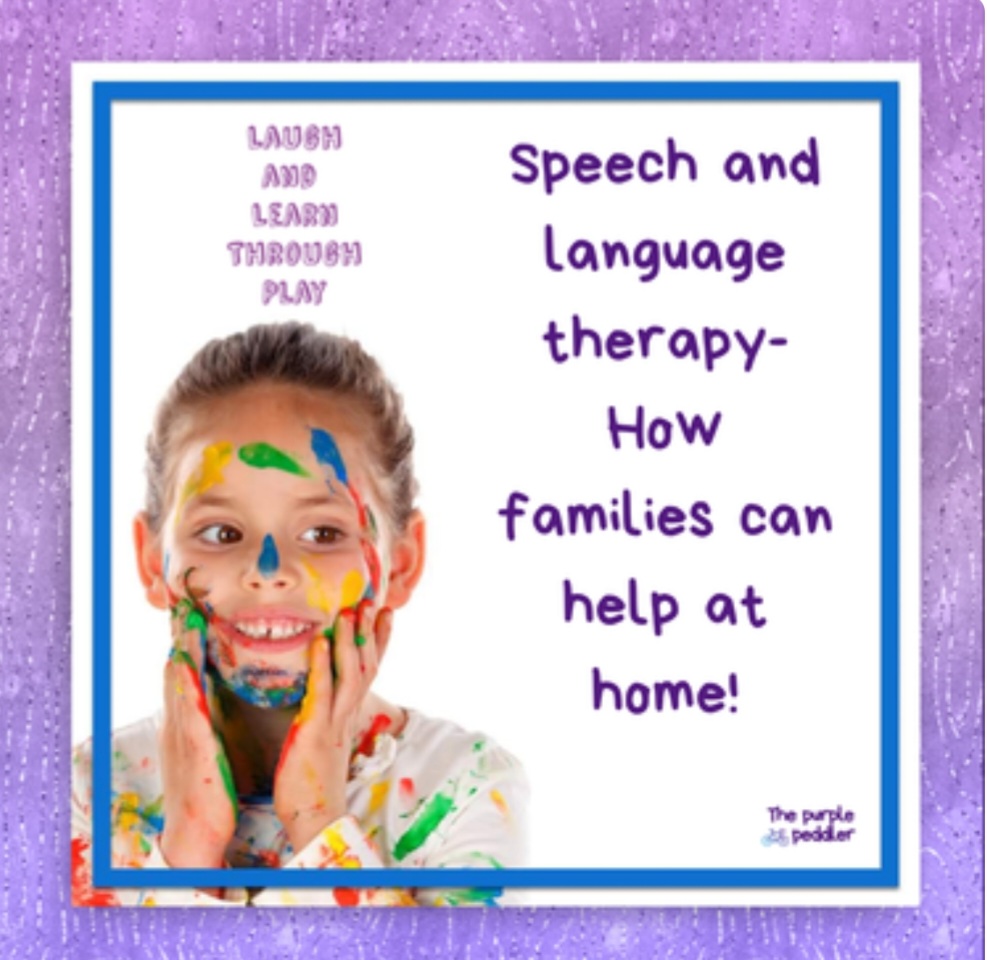Do you have a child with speech and language delays? Are you a home school mom wondering how you can help? Are you looking for fun, easy ways to practice at home? Did you know embedding practice throughout the day is the best way to work on carry over? Interested in learning more? Check out these Tips on when and how you can practice speech and language at home. For the best results talk to your child’s speech and language therapist to prioritize the goals you want to address! If you don’t have a speech therapist please feel free to message you and I will help you with the process of finding one!
1. Model Speech and language: Use grammatically correct sentences and speak clearly at an appropriate rate. Use simple vocabulary words they are familiar with or remember to explain the meaning of a new word. If they say a word wrong model the correct way rather than correcting them.
2. Meal Time: During meal times, talk about everyone’s day or something special that will be happening. Ask your child about their favorite food and use descriptive words to talk about what they are eating. You can also use words that start with the speech sound they are working on.

3. Verbal Routines: Say the same thing each time you play with something. For example, while playing with a car you could always say “ready, set, go” or you can count steps as you go up or downstairs.
4. Trick Them: When you put out materials for them “forget” something so they have to make a request. For example, put out coloring books, but forget the crayons to provide practice requesting.
5. Read Books: This impacts language development so much! Using the same daily book is okay and repetitive books are great! If your child is working a specific speech sound find words in books so they can practice their sounds.

6. Sing Songs: Songs and Nursery rhymes are awesome ways to build language. You child will be more willing to participate and will learn new words. If your child is just starting to speak you can sing and pause so that they can fill in words.
7. Narrate Life: Talk about routines as you are doing them. Comment and expand on what they say using modifiers. The more you model the more they learn.
8. Have Fun: Learning language through play is the best! Outdoor play, board games, and playing with toys will all provide you with many opportunities to work on speech and language skills!

I participated in a Podcast sharing these tips! Check it out!
Want to connect? Join my group https://www.facebook.com/groups/3311410002281605/
Looking for additional ideas on how to embed skills development into everyday activities? Join my email list for my monthly newsletter!
https://forms.aweber.com/form/67/1854092667.htm
Tina Williams, M.A., CCC-SLP

